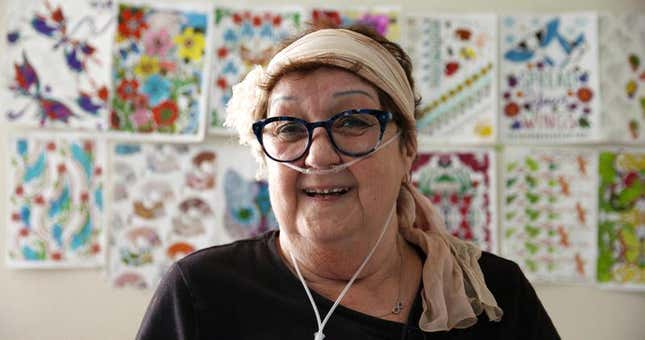America Never Paid Its Debt to Jane Roe
Entertainment

Pop culture has not been kind to Norma McCorvey, the plaintiff at the center of Roe v. Wade. Cinematic and written depictions of McCorvey have alternated between painting her as a dumb country bumpkin or a calculating con artist, someone who was willing to pump both sides of the abortion picket lines for financial gain. FX’s new documentary about McCorvey’s life, AKA Jane Roe, allows McCorvey (who died in 2017) to tell her own story. But the complicated question of what a country that enjoys access to safe and legal abortion owes the woman whose story made that possible remains unanswered in a documentary that refuses to take sides.
AKA Jane Roe opens with a montage outlining the history of the tug-of-war over Norma McCorvey, the plaintiff in Roe v. Wade. It’s what one newscaster, featured in the documentary, describes as “the furious battle that rages around all that her name has stood for.” But in contrast to all the shouting on either side of picket lines, McCorvey, 69 years old when the documentary was filmed, takes deep, gasping hits of oxygen out of a nasal cannula. “This is my death bed confession,” she tells the camera.
It’s only in the film’s final 20 minutes that McCorvey finally gets around to that death bed confession—in the mid-1990s, religious leaders paid her around $500,000 to feign conversion, denounce her “lesbian lifestyle,” and declare that the legal abortion she helped guarantee was actually murder.
But the revelation isn’t so much a bombshell as it is the confirmation of something many have long assumed to be true: that McCorvey’s strange pivot was the result of a need for money rather than any ideological conviction. In 1996, Alexander Payne’s Citizen Ruth fictionalized McCorvey’s convenient and public conversion with Laura Dern in the role of Ruth—a manipulative, paint-huffing mercenary profiting off the fact that the right will do anything to paint her as a pro-life poster child, while militant lesbian feminists don’t care what happens to her as long as she terminates her pregnancy. In his review of the film, Roger Ebert praised the film for having the “reckless courage to take on both sides in the abortion debate.”
-

-

-

-

-

-

-

-

-

-

-

-

-

-

-

-

-

-

-

-

-

-

-

-

-

-

-

-

-

-

-

-

-

-

-

-

-

-

-

-








































